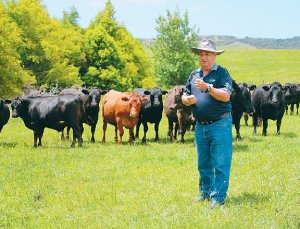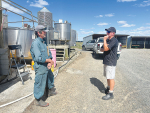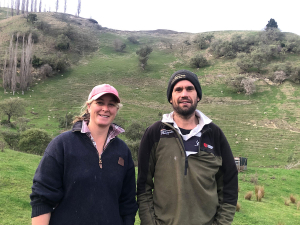He says soil, cows and beneficial bugs such as bees get a boost from mixed swards and on his farm bloat is never a worry, despite pasture being up to 40% clover. Meanwhile nearby farms with only 20% clover and the rest pure ryegrass have to be constantly on guard.
"You can't eat steak and chips all your life; you need a bit of variety."
One way to diversify swards is to allow fodder crops to re-emerge in following pastures. Chicory, plantain and sunflower are great break fed, but also beneficial if allowed to resurface, he suggests.
"Chicory will turn up for three years as long as you don't graze it too hard and destroy the crown."
While everybody knows the nitrogen fixing qualities of clover and lotus major, plants usually considered weeds can also benefit soils.
Dock's deep tap root gets into subsoil, pulling up otherwise buried nutrients while primitive grasses such as kikuyu are good in dry times when nothing much else will grow, he notes.
"The only thing with kikuyu is you need to top it if it gets too long to make sure it keeps some nutrients."
A warning about bees: beware the native trees such as karaka and kowhai; these can kill the imported bee most beekeepers use.









